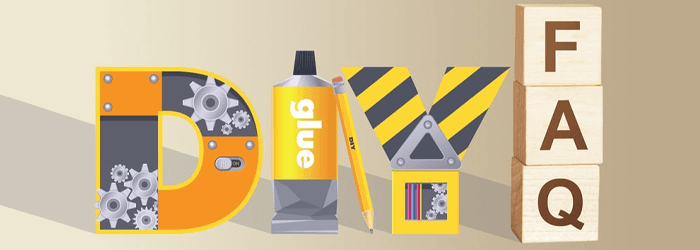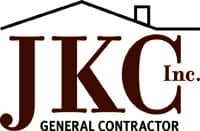DEADLY HOME INVASION | RADON
Have you ever heard of Radon?
Radon is a colorless, odorless, radioactive gas produced by the decay of uranium, found in virtually all rocks and soils, typically at concentrations of 1 to 4 parts per million (ppm). The Earth’s lower atmosphere contains small amounts of radon derived from radioactive decay of Uranium in the ground. During the 1980’s, scientists discovered that radon gas can accumulate inside homes and other buildings at concentrations that are commonly tens of times greater than outdoor air and, in some cases, may be hundreds or even thousands of times greater.
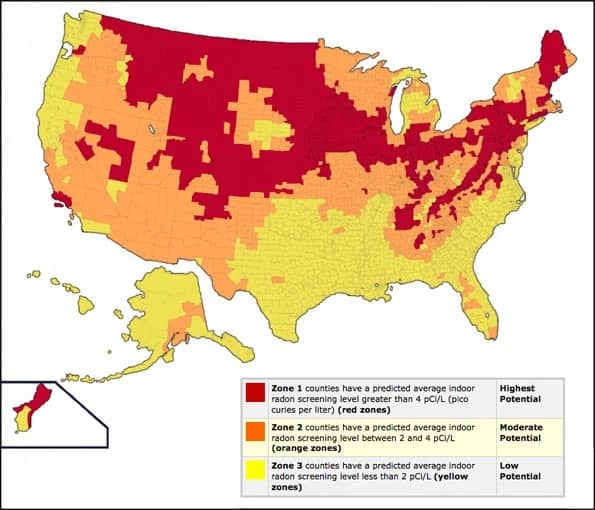
Should you be worried?
Most indoor radon is derived from Uranium in underlying soil and rock that gradually seeps into buildings through cracks or other openings in the ground floor. Houses with unusually high concentrations of indoor radon built on granite-like rocks or limestone that may contain traces of Uranium will have greater radon problems, according to the Arizona Geologic Survey, and should probably be tested. In our state, serious radon problems are rare, although it can happen, according to the Environmental Protection Agency which has picked January as National Radon Action month.
Health Issues:
Radon quickly decays, emitting tiny radioactive particles. When inhaled, these radioactive particles can damage the cells that line the lungs. Long-term exposure to radon can lead to lung cancer, which is the only cancer proven to be associated with inhaling radon. The Surgeon General has warned that radon is a leading cause of lung cancer in the U.S. second only to smoking.
Testing:
The only way to know the level of radon in your home is to test it. The Arizona Department of Health Services offers free testing kits, that you can use yourself. There are instructions on the kit and it takes around a couple of days of hands off collecting before the user sends it into the lab. If you can not obtain a free kit, inexpensive do-it-yourself kits are available at home improvement stores for around $15.
Reading the Results:
You will receive a reading from the lab in picocuries per liter (pCi/L). A picocurie is one-trillionth of a curie (which is the amount of radioactivity emitted by one gram of radium. The Environmental Protection Agency has established mitigation guidelines that recommend mitigation at levels above 4 pCi/L while the World Health Organization has established remediation guidelines at 2 pCi/L.
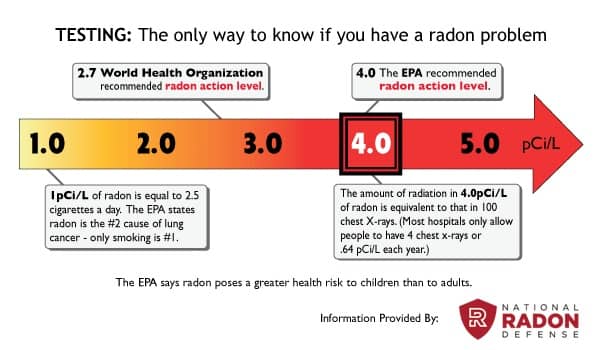
Solution:
Should you find that you have an unacceptable amount of radon in your home, Radon Reduction Systems can reduce radon levels up to 99%. These systems require little maintenance or effort. The EPA recommends that you hire a state certified and/or qualified radon mitigation contractor trained to fix radon problems.
If you are building a new home:
Talk to your builder about radon-resistant features. Here are four simple steps to deter radon –
- Install a layer of clean gravel or aggregate beneath the slab.
- Lay polyethylene sheeting on top of the gravel layer.
- Include gas-tight venting pipe from the gravel through the building to the roof.
- Seal and caulk the foundation thoroughly.
Things to Remember:
- Radon moves up through the soil into houses via cracks and gaps in foundations, walls, flooring and cavities inside walls.
- Any house can have a problem whether new or old, well-sealed or drafty, and with or without a basement.
- If the house next door has radon, that doesn’t mean your house has the same risk.
- Since radon comes from under the house, it’s typical that radon levels will be highest in the lowest floors of the home.
- All houses can be easily fixed by installing an exhaust pipe that will cost from $1,200 to $2,500.
- Be sure to hire a licensed and insured contractor to treat radon
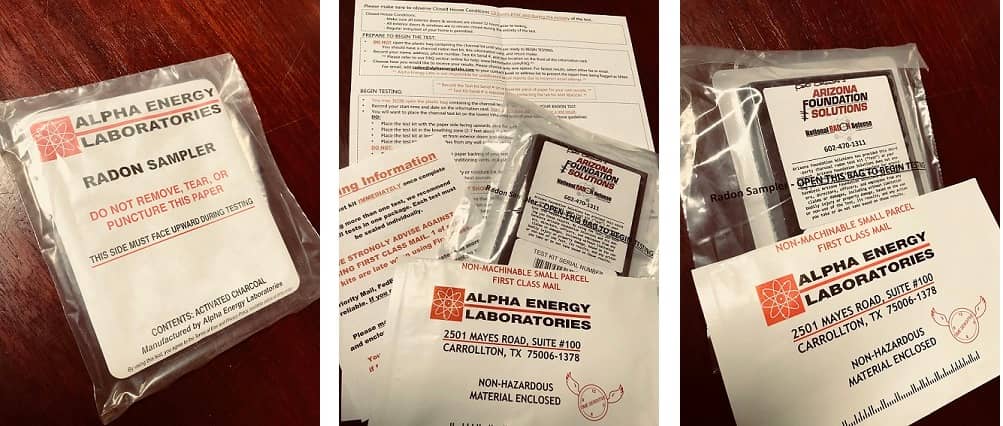
For more information on radon:
Please visit the EPA’s website here or the ADHS here.
Contact the Radiation Regulatory Agency
4814 S. 40th Street
Phoenix, AZ 85040
(602) 255-4845
Visit their website here
PODCAST
Rosie tackles listener home improvement calls including insulating a garage without costing a lot and underlay suggestions for replacing a tile roof. Plus a discussion checking security systems like smoke detectors, carbon dioxide detectors, radon gas and security break in alarms. Plus we welcome a new partner to the Rosie Certified Network.

